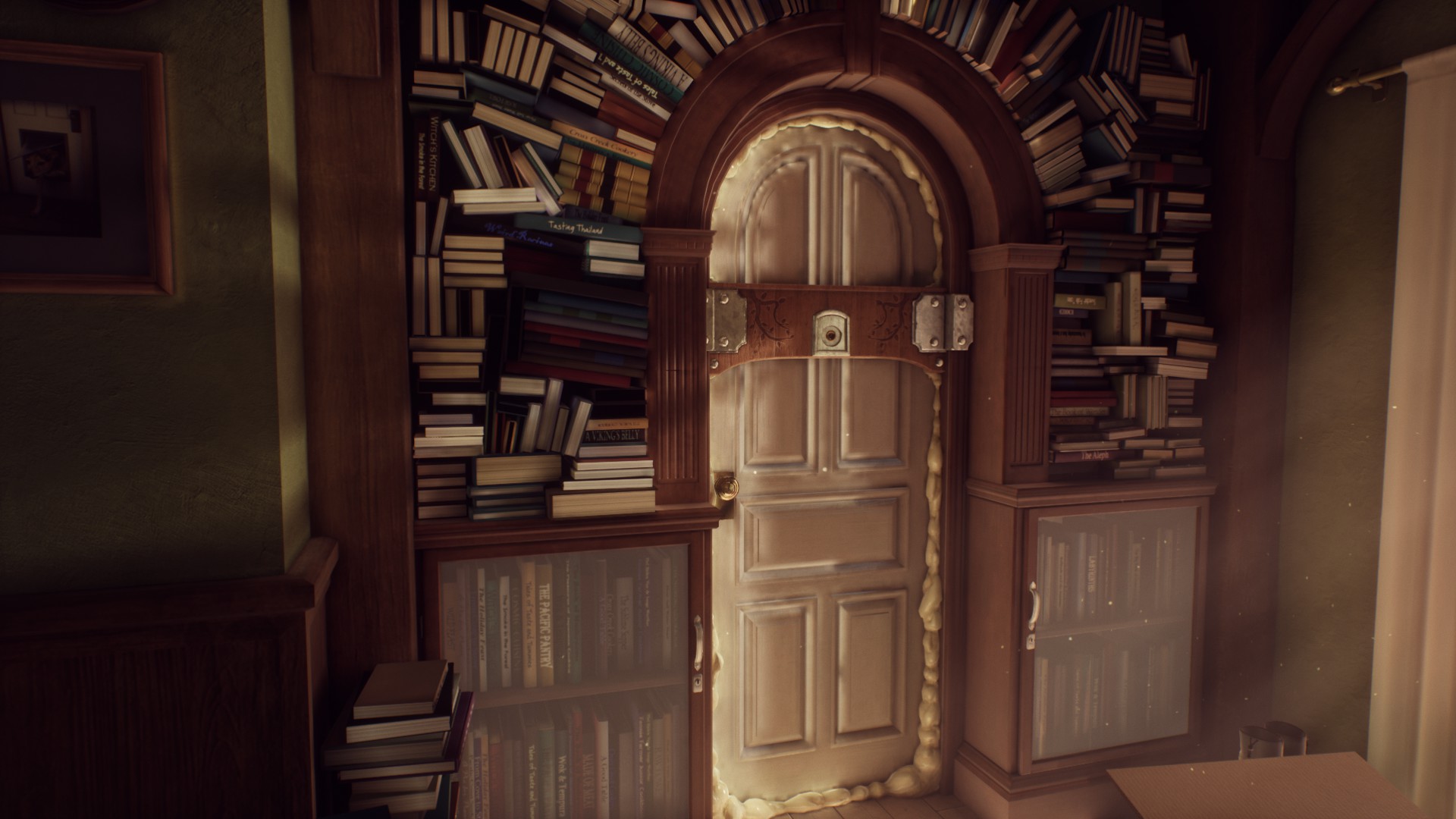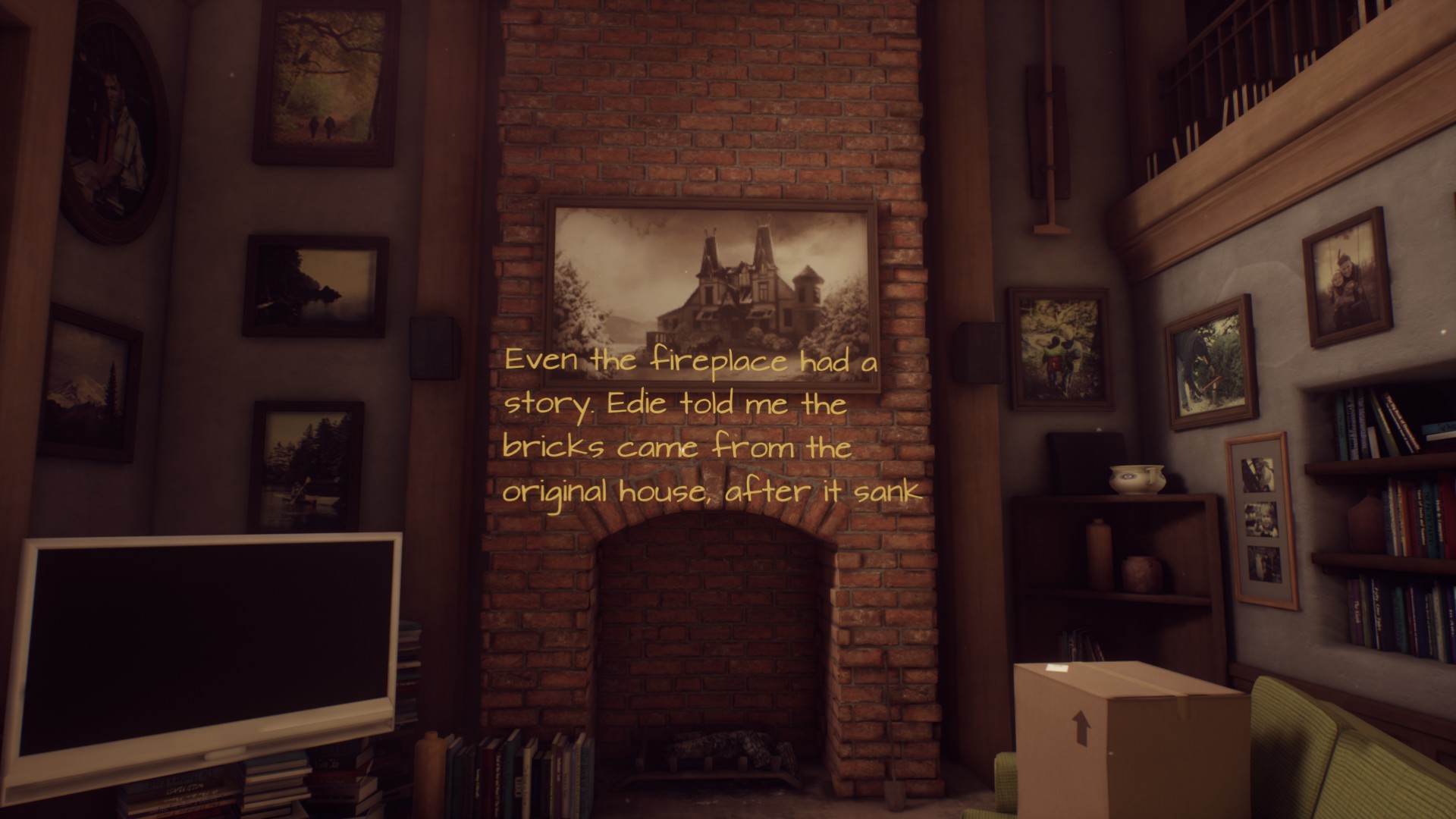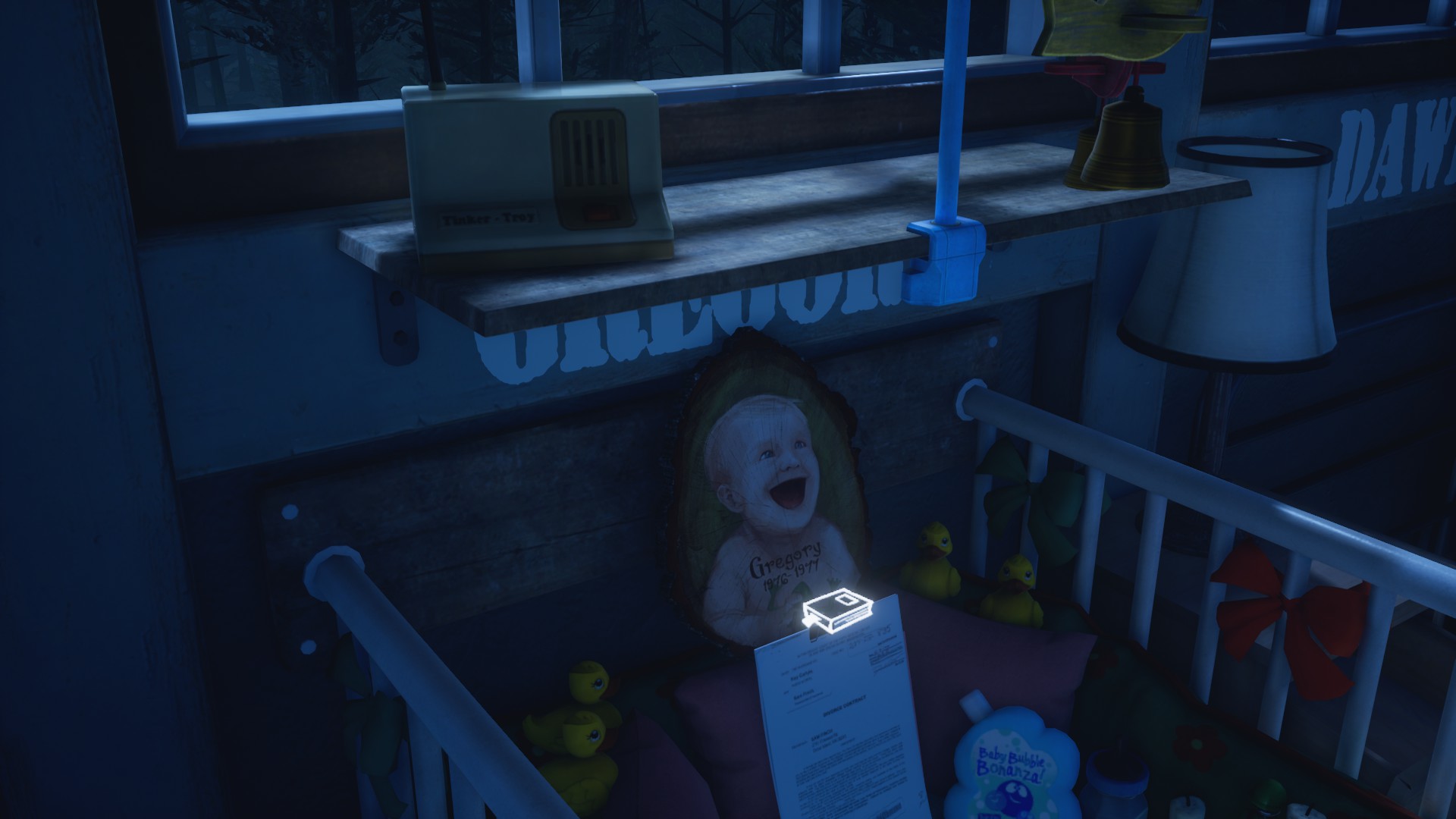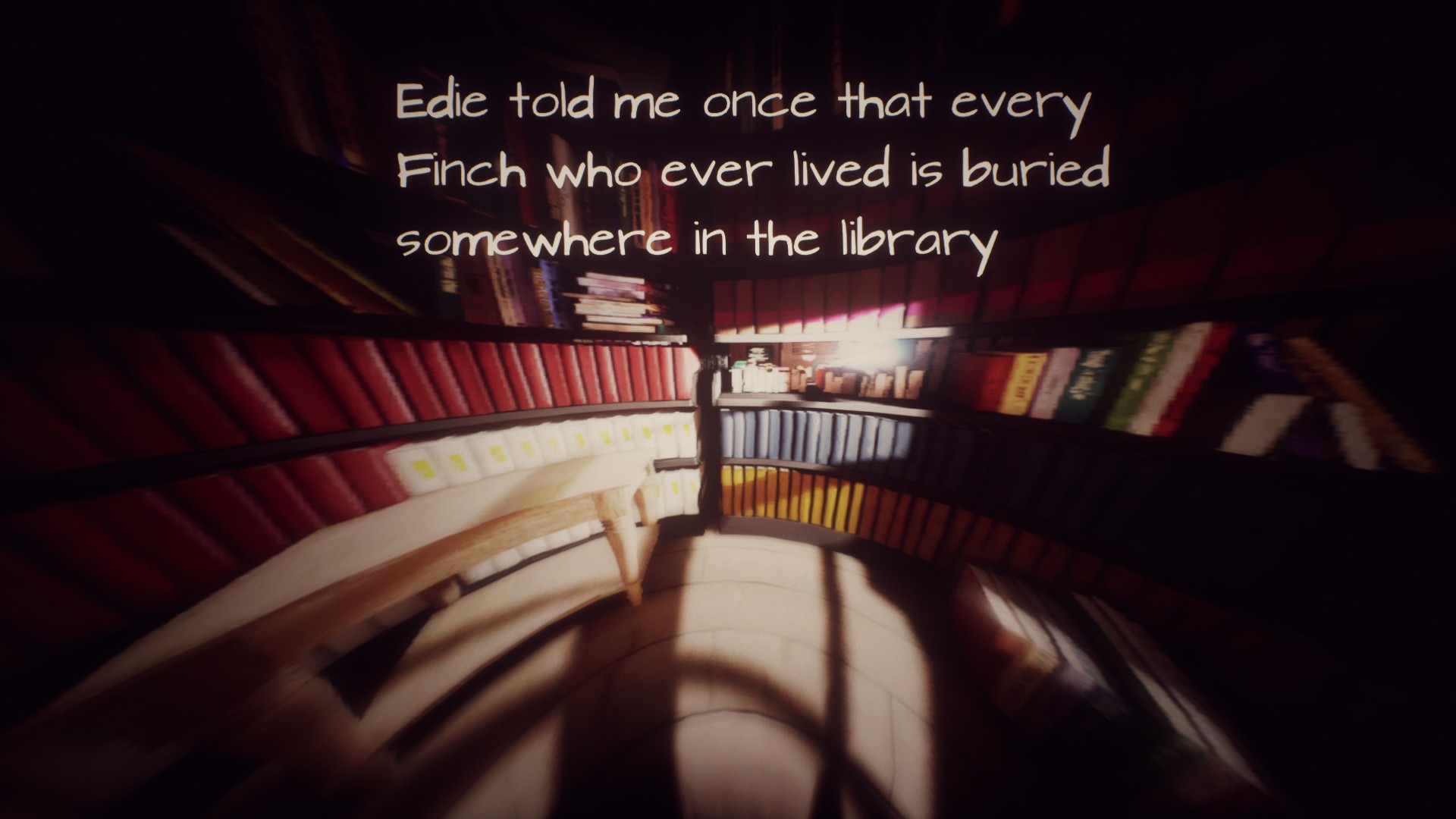Our Verdict
Touching, sad, and brilliant; a story worth forgiving the limited interactivity to experience.
PC Gamer's got your back
What is it? First-person exploration of a very strange family home.
Expect to pay: $20/£15
Publisher: Annapurna Interactive
Developer: Giant Sparrow
Multiplayer: None
Link: Official site
Buy it: Steam
My name is Edith Finch, and I'm a 17-year-old girl with a problem: My family, going back at least three generations, has a habit of dying young. Really young. Most don't make it out of childhood; my mother Dawn, who lived to 48, was an outlier. Only Edie, my great-grandmother, bucked the trend. Coincidentally or not, she was also the chronicler of the Finch family history, whose strange stories are irrevocably intertwined with the sprawling, bizarre estate that housed the clan for decades. And now, at the beginning of What Remains of Edith Finch, I'm the last one left—and I've come home to suss out their secrets, and learn the truth about the Finch family curse.
The game begins as a Gone Home-like exploration into an empty Pacific Northwestern home. The most striking thing about the Finch manor is how normal it all seems. It looks like a house that people actually lived in, built to proper proportions and furnished in an entirely mundane manner, albeit with more books than you might expect. The sealed rooms, courtesy of Edith's mom, are admittedly strange, but in a way that speaks of eccentricity rather than anything sinister. As I roamed, Edith reminisced about the mountains of canned fish in the kitchen, or the origin of the bricks in the fireplace that dominated the living room. It all seemed safe and unremarkable, like the first steps in a coming-of-age tale about a young woman seeing her family for the first time as an adult.
Then I discovered the secret passage, and the shrine to Molly Finch, who died in 1947—nearly 70 years ago—at 10 years of age.
Skeletons in the closet
Molly's story is as out-of-left-field as anything I've ever encountered in a videogame.
My god, what a ride. Molly's story is as out-of-left-field as anything I've ever encountered in a videogame, and it ended on a note of completely unexpected, and thoroughly disturbing, darkness. By the time it was over, I honestly believed that I'd been faked out, and that What Remains of Edith Finch was in reality a straight-up horror tale about a 'real' family curse that only comes out at night. But that, like so much of the game, was a deft bit of misdirection.
The family stories told in What Remains of Edith Finch are filtered through the lens of time, and the closer they come to Edith's own life, the less fantastical they seem. Early tales like Molly's may have only the thinnest basis in reality—or maybe not!—while those of her uncle Gregory or her older brother Lewis are firmly rooted in fact. Yet while their demises grow less fanciful as their lives become more familiar, the impact of their losses strike much more powerfully. Most of us probably know someone like Lewis, a kind young man with a keen mind who just couldn't find his way in this world. And even when the story moves into unambiguously dangerous territory—the death of an infant, which you will not just witness but participate in—it does so with remarkable grace and sensitivity.
It was amazing to see so many different styles incorporated, and handled so well, into a single game.
What Remains of Edith Finch is a very guided tale—a 'walking simulator,' as they say—with few opportunities to explore off the beaten path, and very limited interactivity. Special movements like climbing and crouching happen automatically when necessary, and you'll be prompted to interact with the environment where, and how, appropriate. There's no inventory or choices to be made, and while some hotspots require a little bit of exploring to find, nothing is really hidden.
But the stories of the Finch family tree that are interspersed through Edith's journey more than make up for that narrow focus. Reading each of Edie’s memorials to a deceased family member took me on a unique adventure through different first-person formats: I got to know Grandpa Sam through the lens of an old, manual-focus camera, I flew a kite with Gus over a wedding on a beach, I even became the ruler of a brightly-colored videogame kingdom. None of these interludes are mechanically complex, but it was amazing to see so many different styles incorporated, and handled so well, into a single game.
I was frustrated at first by the checkpoint save system, but they come at a decent frequency, and the 'saving' indicator is easy to see, with bright, bold letters, so I was never unsure about when it was safe to pack it up and take a break. And once I was into the game it became irrelevant anyway: What Remains of Edith Finch isn’t a very long game—I logged about a half-dozen hours into it, and that’s with plenty of poking around—and it was so enthralling that I had no interest in stopping anyway.
Keep up to date with the most important stories and the best deals, as picked by the PC Gamer team.
There are a decent number of video settings to fiddle with (and it's a very pretty game), but the options to adjust the game's controls are almost completely non-existent. The mouse sensitivity can be changed, although even at maximum it's slow and sluggish, and the WASD keys can't be remapped. On the upside, there are no other controls, so you're not likely to break your brain trying to figure it out.
The end game
What Remains of Edith Finch is a masterful piece of storytelling: gorgeous, skillfully told, uplifting in places, and devastating in others.
As the branches of Edith's family tree grow closer to her own life, and more familiar to her experience, it enables her to speak more personally about them—a shift in perspective that gives her words an emotional heft that's lacking when she's reflecting on a grandparent or uncle she never met. About Lewis, whose room still bears a very familiar, pungent odor when she enters, she says, "Everyone told me to stay out of Lewis' room. Except Lewis." The shift in tone can be seen in the house itself, too, but very cleverly in the opposite direction: Barbara, who died in 1960 under perfectly mysterious (and grim) circumstances, lived in a very humdrum room on the second floor, where she pressed her laundry and did her best to cope with memories of better years. Lewis, who died when Edith was 11, literally lived in a boat in the sky.
The end of the game was intensely sad, not because of the lost family members, but because of the lost family: I could feel the inevitability of Edith and Edie's looming last day together, and it was a right kick in the guts when it came. I was filled with anger, because it was so damned unfair, but I also knew that everyone was doing their best—doing what they believed was right. Knowing that didn't take the edge off. It still doesn't.
What Remains of Edith Finch is a masterful piece of storytelling: gorgeous, skillfully told, uplifting in places, and devastating in others. Avoid seeing too many spoilers— seriously, I can't think of a game more in need of being unspoiled than this one—and play it.
Touching, sad, and brilliant; a story worth forgiving the limited interactivity to experience.

Andy has been gaming on PCs from the very beginning, starting as a youngster with text adventures and primitive action games on a cassette-based TRS80. From there he graduated to the glory days of Sierra Online adventures and Microprose sims, ran a local BBS, learned how to build PCs, and developed a longstanding love of RPGs, immersive sims, and shooters. He began writing videogame news in 2007 for The Escapist and somehow managed to avoid getting fired until 2014, when he joined the storied ranks of PC Gamer. He covers all aspects of the industry, from new game announcements and patch notes to legal disputes, Twitch beefs, esports, and Henry Cavill. Lots of Henry Cavill.





